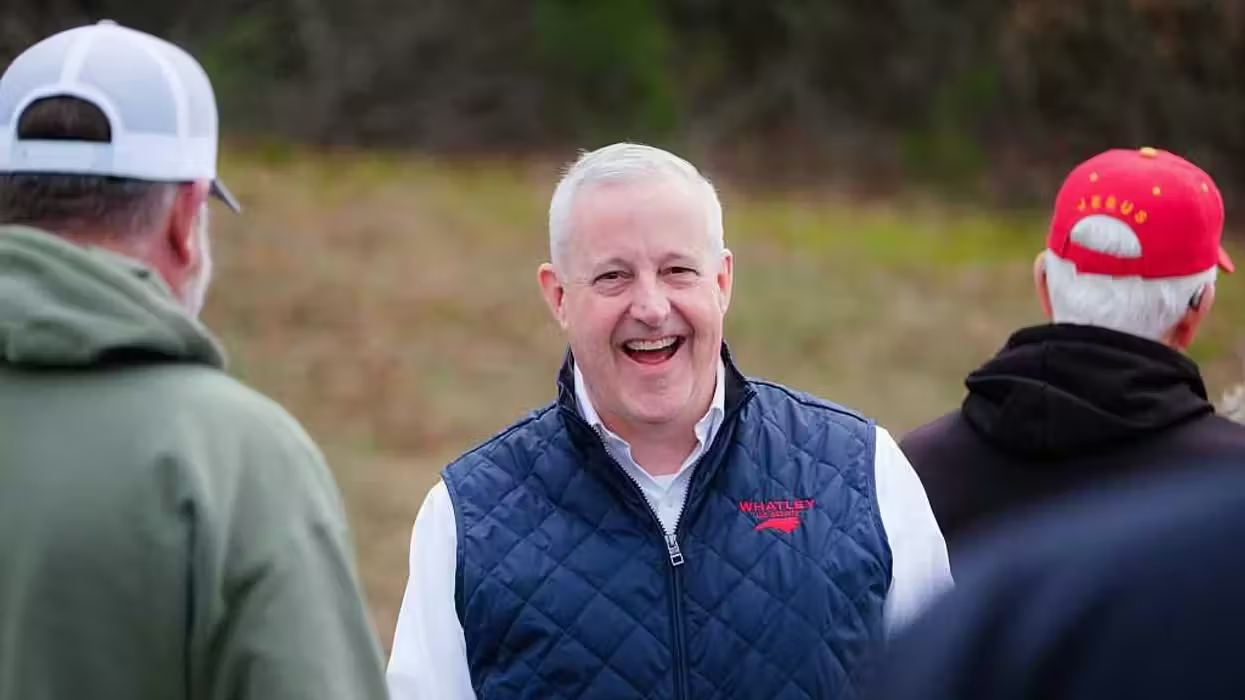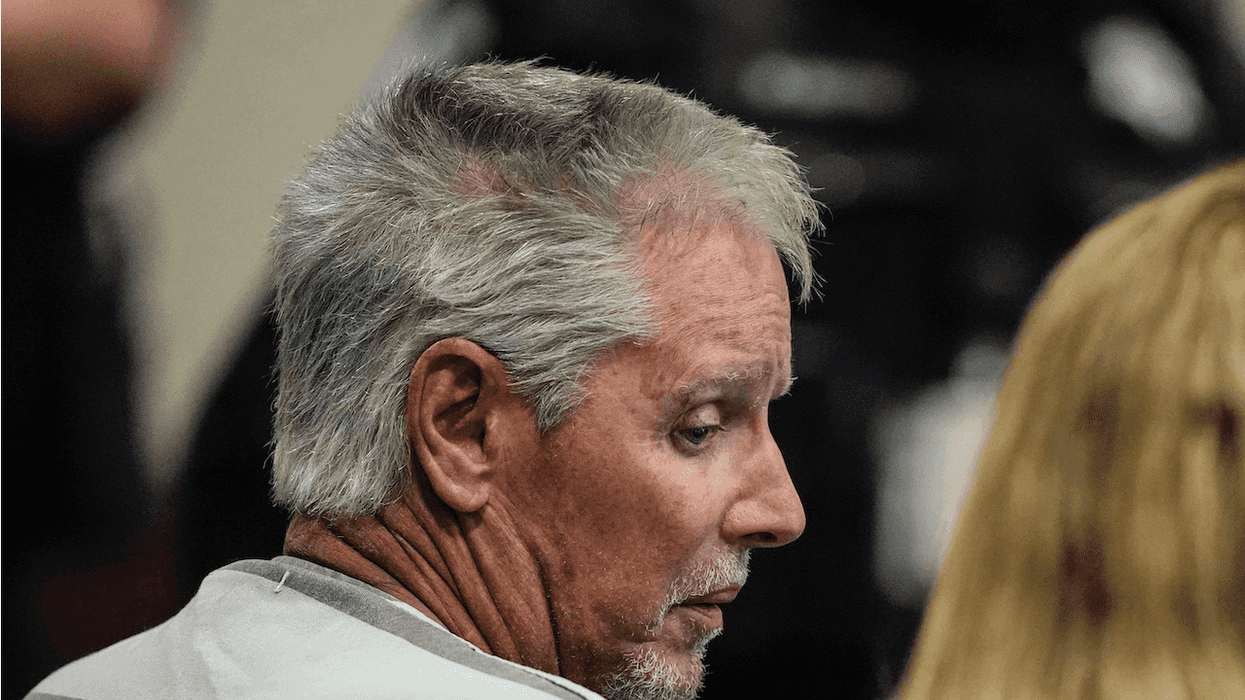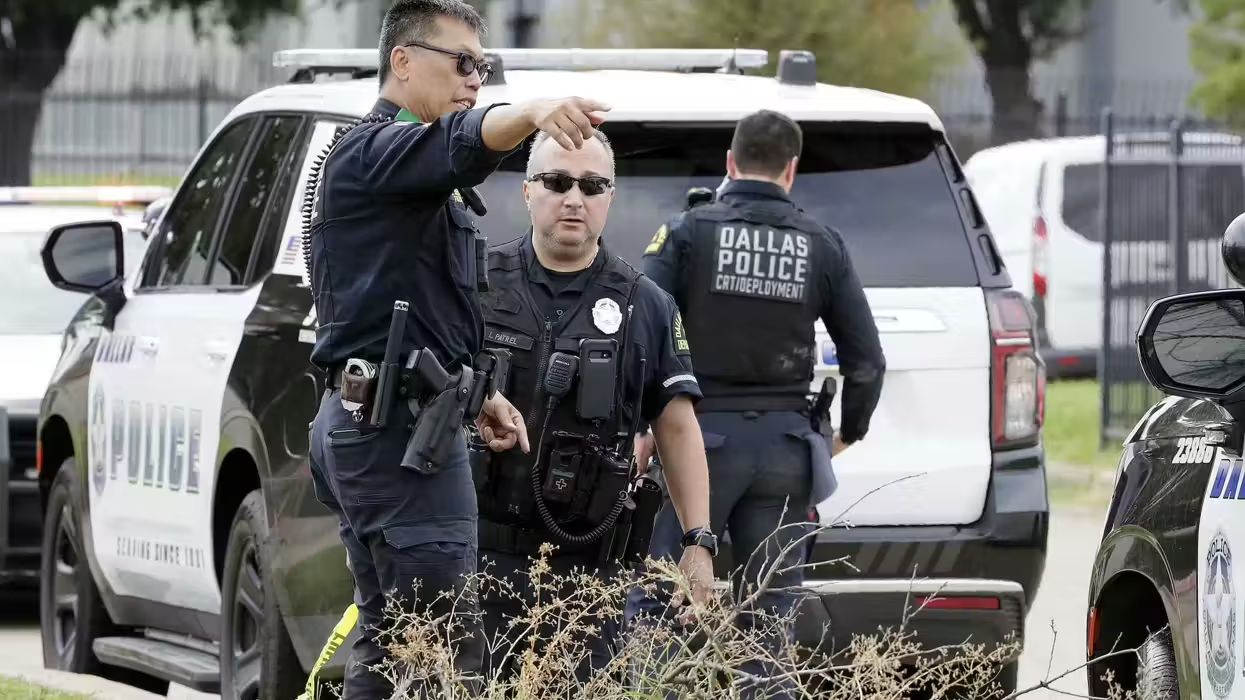
© 2026 Blaze Media LLC. All rights reserved.
There was a time when Thanksgiving was about more than human stampedes in pursuit of cheap electronics. There was even a time when it was about more than football and turkey. Now, more than ever before, we are in need of a great awakening to bring us back to the roots of Thanksgiving and what it represented to the civil society.
At its core, Thanksgiving has always embodied faith, family, and country. Long before Thanksgiving became associated with one particular event in history to be celebrated at the end of November, it was more of a concept – a call to fasting and prayer to beseech the Lord to continue protecting us, our families, and our nation from all calamities and to shower us with his blessings. Individual colonies and states observed floating days of thanksgiving, prayer, and fasting for many years before it became an official national holiday.
The foundation of Thanksgiving
The first national Thanksgiving Proclamation was declared by the Continental Congress in 1777 and drafted by Samuel Adams. On December 17, 1777, the colonists marked a day of thanksgiving “to acknowledge with Gratitude their Obligation to him for Benefits received, and to implore such farther Blessings as they stand in Need of.”
They recognized God’s providence as the guiding force in establishing their independence and securing their unalienable rights. They further prayed that God might nurture the “Schools and Seminaries of Education, so necessary for cultivating the Principles of true Liberty, Virtue and Piety.”
On November 26, 1789, the nation marked its first day of thanksgiving under the new Constitution, following a proclamation issued by George Washington seven weeks earlier. Washington called for a day of public thanksgiving and prayer that, among other things, would beseech God “to pardon our national and other transgressions” and “to promote the knowledge and practice of true religion and virtue.”
Throughout the early years of our country, various presidents established public days of prayer, thanksgiving, and fasting on random days throughout the year. With the outbreak of the “Quasi War” with France in 1798, John Adams called for a national day of “solemn humiliation, fasting, and prayer.” Adams wrote in his proclamation that a “national acknowledgement” of God’s providence was not only an “indispensable duty” of the nation, “but a duty whose natural influence is favorable to the promotion of that morality and piety without which social happiness can not exist nor the blessings of a free government be enjoyed.”
The following year, on April 25, Adams called for another “thanksgiving.” What did John Adams have in mind for such a day? “That the citizens on that day abstain as far as may be from their secular occupations, devote the time to the sacred duties of religion in public and in private; that they call to mind our numerous offenses against the Most High God, confess them before Him with the sincerest penitence.”
Indeed, the concept of Thanksgiving was always rooted in the notion that, as a nation, our entire prosperity, security, and liberty are completely dependent upon God’s providence. It also reflected the character of a nation that, far from banishing God from the public square, believed that public service of God, and even the promotion of religious values thereof, so long as they were not compelled by the force of law, were indispensable to the survival of the nation.
It wasn’t until 1863 that Thanksgiving became a national holiday tied specifically to the end of November. At the persistent lobbying of Sarah Josepha Hale, “The Godmother of Thanksgiving,” President Abraham Lincoln signed a proclamation on October 3, 1863, establishing the last Thursday in November as the fixed national day of thanksgiving.
Hale had long advocated a national thanksgiving out of a sense of patriotism, religious observance, and appreciation of American history, but also for the purpose of unity and family time. Lincoln noted in the proclamation the purpose of a single day reflecting “one heart and one voice, by the whole American people.”
The connection between a national day of thanksgiving and the original thanksgiving of the pilgrims was popularized by Hale in the mid-19th century. She spoke of a fixed date at the end of November because, among other reasons, “harvests of all kinds are gathered in” and the blessings of God are most evident.
Sadly, as this nation became less attuned to the agriculture seasons and annual harvests, Thanksgiving had already become increasingly less focused on the original intent of the holiday, even before the modern era of pagan hedonism and Black Friday.
Calvin Coolidge observed the changes in technology (1923 proclamation) but noted that the purpose of Thanksgiving is everlasting. “It is altogether a good custom,” he wrote in his 1924 proclamation. “It has the sanction of antiquity and the approbation of our religious convictions. In acknowledging the receipt of divine favor, in contemplating the blessings which have been bestowed upon us, we shall reveal the spiritual strength of the nation.”
However, as we step back and examine the character of this nation at present, it is truly breathtaking how we now celebrate Thanksgiving with a national character that is antithetical to the values championed by those who initiated such a day of prayer, fasting, and repentance.
Modern America: “The anti-Thanksgiving”
Thanksgiving 2015 is particularly marred by grim milestones we have reached this year. We now have a Supreme Court that can countermand the laws of the Supreme God our Founding Fathers beseeched on Thanksgiving and redefine the institution of marriage – the core of civilization and family itself – from the federal bench.
We’ve gone from promoting the virtues of public and private devotion to religion to eradicating God from the public square entirely. Just this year, the Oklahoma Supreme Court ordered a replica of the Ten Commandments to be removed from the state capitol.
Whereas our Founders viewed the promotion of religious virtue as the indispensable means of securing liberty and prosperity, our existing state and federal governments are embarking on a pagan inquisition and harnessing secularism as a means of violating the most sacred liberties – freedom of conscience and private property.
This was the year when a Christian was thrown in jail for peacefully abstaining from signing a marriage license for something that has never been regarded as a marriage until this generation and is anathema to the God we once beseeched on Thanksgiving.
This was a year when individuals were fined and had their livelihood confiscated for declining to violate their religious principles with their own private property. As we commemorate the Pilgrims who became pioneers for a new country founded upon religious freedom, that same nation has been transformed into a society that is intolerant of religion – except Sharia law, which, ironically, encourages religious intolerance toward others.
It was the year in which we have seen the breakdown of the family, of civil order, and of borders, as well as the culmination of years’ worth of growing dependency on government instead of God.
At its heart, the breakdown of family and faith has led to all the other social and fiscal problems we are witnessing. This is why Sarah Hale felt Thanksgiving should be on par with Independence Day as a foundational national holiday.
The recognition of God’s providence, the importance of religious observance, and the vitality of family always stood as the pillars of this American civil society, through which we’ve been able to secure the most liberty and prosperity of any other civilization over the past two centuries. The liberties secured by our independence could only be preserved by a virtuous civil society rooted in faith and family, a society we once celebrated on Thanksgiving.
As Robert Winthrop, former speaker of the House, warned in 1849, “Men, in a word, must necessarily be controlled either by a power within them or by a power without them; either by the Word of God or by the strong arm of man; either by the Bible or by the bayonet.”
Now that we have repudiated the Bible and defiled the Constitution, we have embraced the bayonet. We have embraced the bayonet of a large and overbearing government that is now the steward of liberty rather than its protector. In addition, we have embraced the bayonet of radical Islam.
Europe’s impending conquest by the Islamists is rooted in the rot of its own social and moral values that has weakened the core of its civilization and made it susceptible to outside invaders who are all too eager to fill that religious vacuum. America has held onto its core values for longer than Europe, but predictably, the rise of Islamic influence in America is occurring alongside the erosion of its own Judeo-Christian values.
The decline of faith and family in this country has led to the decline of American values. The misunderstanding of what is so great about America, or indeed if it is great or exceptional at all, is what is driving the elites to fundamentally transform America through a pagan inquisition and through unbridled and imprudent immigration. The misunderstanding of what George Washington desired — a nation united behind a “common cause” encountering “common dangers, sufferings, and successes” — has been supplanted by the religion of multiculturalism.
As early as 1989, at the end of his farewell address, Ronald Reagan warned about the ill effects of the loss of American patriotism and appreciation for our heritage on the future generation – the one that is today leading our society. He noted that our history, such as the reason “why the pilgrims came here,” had been distorted based on what is in fashion, not what’s important. Contrasting the growing movement of moral relativism, multiculturalism, and post-Americanism to the America he grew up in, Reagan observed:
Those of us who are over 35 or so years of age grew up in a different America. We were taught, very directly, what it means to be an American. And we absorbed, almost in the air, a love of country and an appreciation of its institutions. If you didn't get these things from your family you got them from the neighborhood, from the father down the street who fought in Korea or the family who lost someone at Anzio. Or you could get a sense of patriotism from school. And if all else failed you could get a sense of patriotism from the popular culture. The movies celebrated democratic values and implicitly reinforced the idea that America was special. TV was like that, too, through the mid-'60s.
What better time to return to our roots and recommit to transmitting our history and values to our children than on Thanksgiving?
Bring back our heritage
Thanksgiving was intended as the epitome of the common cause our Founders longed for. The coalescence of faith, family, patriotism, and appreciation for America’s history and values – all in a universal day of prayer and thanksgiving – embodied the founding vision, the vision that has been so corrupted in our generation.
In his 1986 Thanksgiving proclamation, Reagan wrote that “no custom reveals our character as a Nation so clearly as our celebration of Thanksgiving Day,” as it is “rooted deeply in our Judeo-Christian heritage” and “underscores our unshakable belief in God as the foundation of our Nation.”
As constitutional conservatives, we must lead by example and live by our founding principles in a way that will be emulated by others. That is why it behooves all of us who still appreciate America’s Founding, history, religious virtue, and political values to reflect upon this time and recommit to spreading these values far and wide in the hopes of restoring what Thanksgiving represents and reflects upon our nation.
It is a time for all of us to first look inward and return to God so that we will be worthy of His blessings and divine providence. Although our social, fiscal, and security ills appear insurmountable, nothing is insurmountable for God, and it’s never too late to turn to Him for his providence. That we have a supreme leader we can turn to in a time of great peril is, at its foundation, why we are so thankful and why our forefathers were as well.
"Give thanks unto the Lord, for He is good." –Psalm 107:1
The most interesting stories aren’t told in the headlines. They’re in the FOOTNOTES!
Get Conservative Review’s daily roundup of the most interesting, underreported, and unconventional news. Sign up today!
Want to leave a tip?
We answer to you. Help keep our content free of advertisers and big tech censorship by leaving a tip today.
Want to join the conversation?
Already a subscriber?
Blaze Podcast Host
Daniel Horowitz is the host of “Conservative Review with Daniel Horowitz” and a senior editor for Blaze News.
RMConservative
Daniel Horowitz
Blaze Podcast Host
Daniel Horowitz is the host of “Conservative Review with Daniel Horowitz” and a senior editor for Blaze News.
@RMConservative →more stories
Sign up for the Blaze newsletter
By signing up, you agree to our Privacy Policy and Terms of Use, and agree to receive content that may sometimes include advertisements. You may opt out at any time.
Related Content
© 2026 Blaze Media LLC. All rights reserved.
Get the stories that matter most delivered directly to your inbox.
By signing up, you agree to our Privacy Policy and Terms of Use, and agree to receive content that may sometimes include advertisements. You may opt out at any time.






